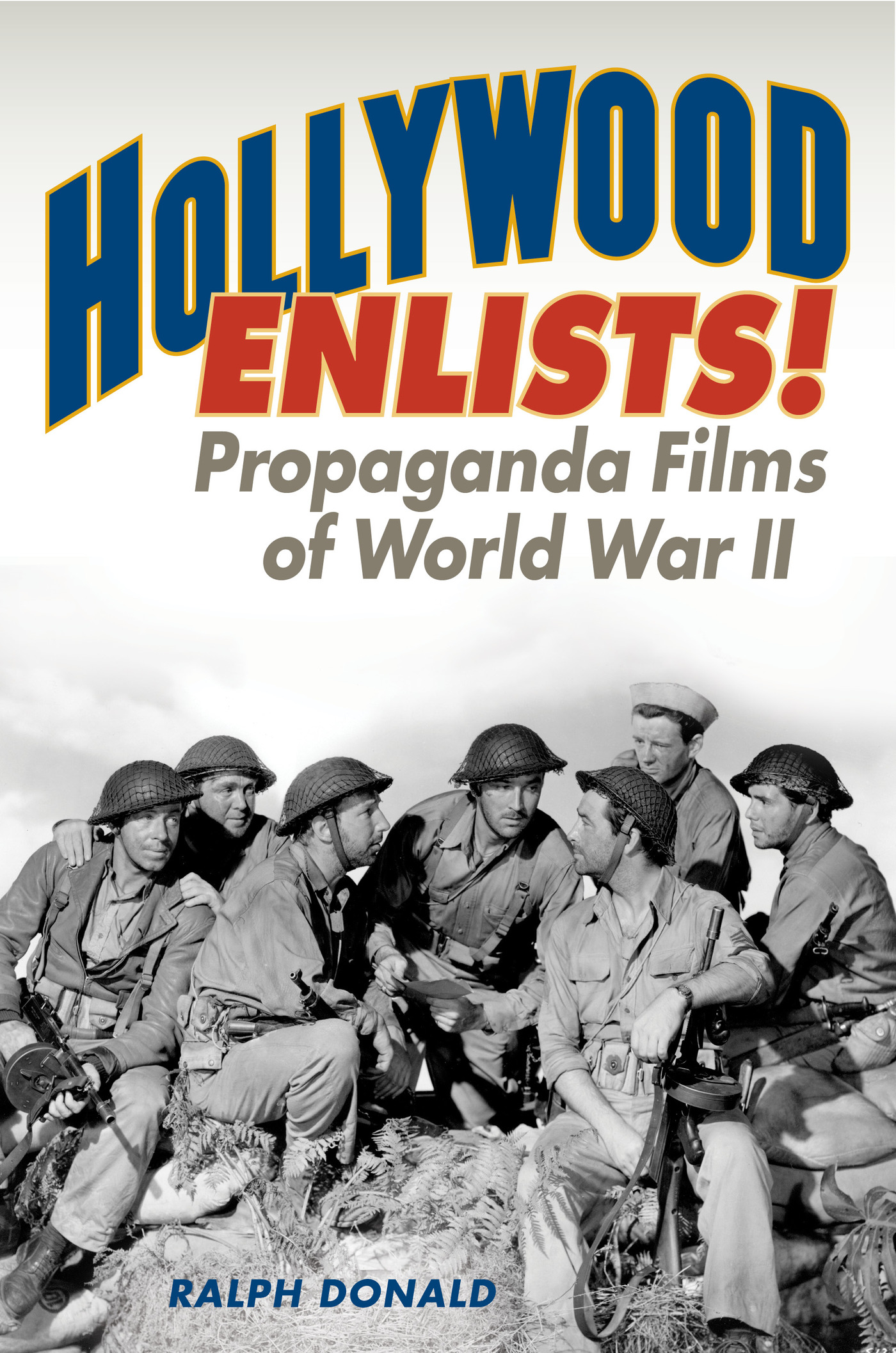
Hollywood Enlists!
FILM AND HISTORY
Series Editor: Cynthia J. Miller
European Cinema after the Wall: Screening EastWest Mobility, edited by Leen Engelen and Kris Van Heuckelom
Native Americans on Network TV: Stereotypes, Myths, and the Good Indian, by Michael Ray FitzGerald
Bringing History to Life through Film: The Art of Cinematic Storytelling, edited by Kathryn Anne Morey
Hollywood and the End of the Cold War: Signs of Cinematic Change, by Bryn Upton
Smart Chicks on Screen: Representing Womens Intellect in Film and Television, edited by Laura Mattoon DAmore
The JFK Image: Profiles in Docudrama, by Raluca Lucia Cimpean
Food on Film: Bringing Something New to the Table, edited by Tom Hertweck
Real War vs. Reel War: Veterans, Hollywood, and WWII, by Suzanne Broderick
Talking about Pauline Kael: Critics, Filmmakers, and Scholars Remember an Icon, edited by Wayne Stengel
The Westerns and War Films of John Ford, by Sue Matheson
Buccaneer: James Stuart Blackton and the Birth of American Movies, by Donald Dewey
French Cinema and the Great War: Remembrance and Representation, edited by Marcelline Block and Barry Nevin
The Hollywood Trust: Trade Associations and the Rise of the Studio System, by Kia Afra
From the Headlines to Hollywood: The Birth and Boom of Warner Bros., by Chris Yogerst
The Ambivalent Legacy of Elia Kazan: The Politics of the Post-HUAC Films, by Ron Briley
Propaganda Documentaries in France: 19401944, by Jean-Pierre Bertin-Maghit, translated from the French by Marcelline Block
Adapting the Beat Poets: Burroughs, Ginsberg, and Kerouac on Screen, by Michael J. Prince
Critical Perspectives on the Western: From A Fistful of Dollars to Django Unchained, edited by Lee Broughton
Hollywood Enlists! Propaganda Films of World War II, by Ralph Donald
Hollywood Enlists!
Propaganda Films of World War II
Ralph Donald
ROWMAN & LITTLEFIELD
Lanham Boulder New York London
Published by Rowman & Littlefield
A wholly owned subsidiary of The Rowman & Littlefield Publishing Group, Inc.
4501 Forbes Boulevard, Suite 200, Lanham, Maryland 20706
www.rowman.com
Unit A, Whitacre Mews, 26-34 Stannary Street, London SE11 4AB
Copyright 2017 by Rowman & Littlefield
All rights reserved. No part of this book may be reproduced in any form or by any electronic or mechanical means, including information storage and retrieval systems, without written permission from the publisher, except by a reviewer who may quote passages in a review.
British Library Cataloguing in Publication Information Available
Library of Congress Cataloging-in-Publication Data
Names: Donald, Ralph, author.
Title: Hollywood enlists! : propaganda films of World War II / Ralph Donald.
Description: Lanham : Rowman & Littlefield, [2017] | Series: Film and history | Includes bibliographical references and index. | Includes annotated filmography.
Identifiers: LCCN 2016039956 (print) | LCCN 2016057266 (ebook) | ISBN 9781442277267 (cloth : alk. paper) | ISBN 9781442277274 (electronic)
Subjects: LCSH: World War, 1939-1945Motion pictures and the war. | Motion pictures in propagandaUnited StatesHistory. | War filmsUnited StatesHistory and criticism. | Motion picturesUnited StatesHistory.
Classification: LCC D743.23 D66 2017 (print) | LCC D743.23 (ebook) | DDC 303.3/75dc23
LC record available at https://lccn.loc.gov/2016039956
 TM The paper used in this publication meets the minimum requirements of American National Standard for Information Sciences Permanence of Paper for Printed Library Materials, ANSI/NISO Z39.48-1992.
TM The paper used in this publication meets the minimum requirements of American National Standard for Information Sciences Permanence of Paper for Printed Library Materials, ANSI/NISO Z39.48-1992.
Printed in the United States of America
To journalist, author, and editor Elizabeth Donald, my daughter, who kindly gave this manuscript a highly skilled second look
Introduction
American Propaganda
To many Americans, propaganda is a dirty word.
Because of common usage, the word evokes visions of an artless, tasteless, untruthful practice used only by totalitarian countries to achieve thought control over their populations.
The popular belief is that Americans are not propagandists, and have not engaged in its use. But thats far from the truth.
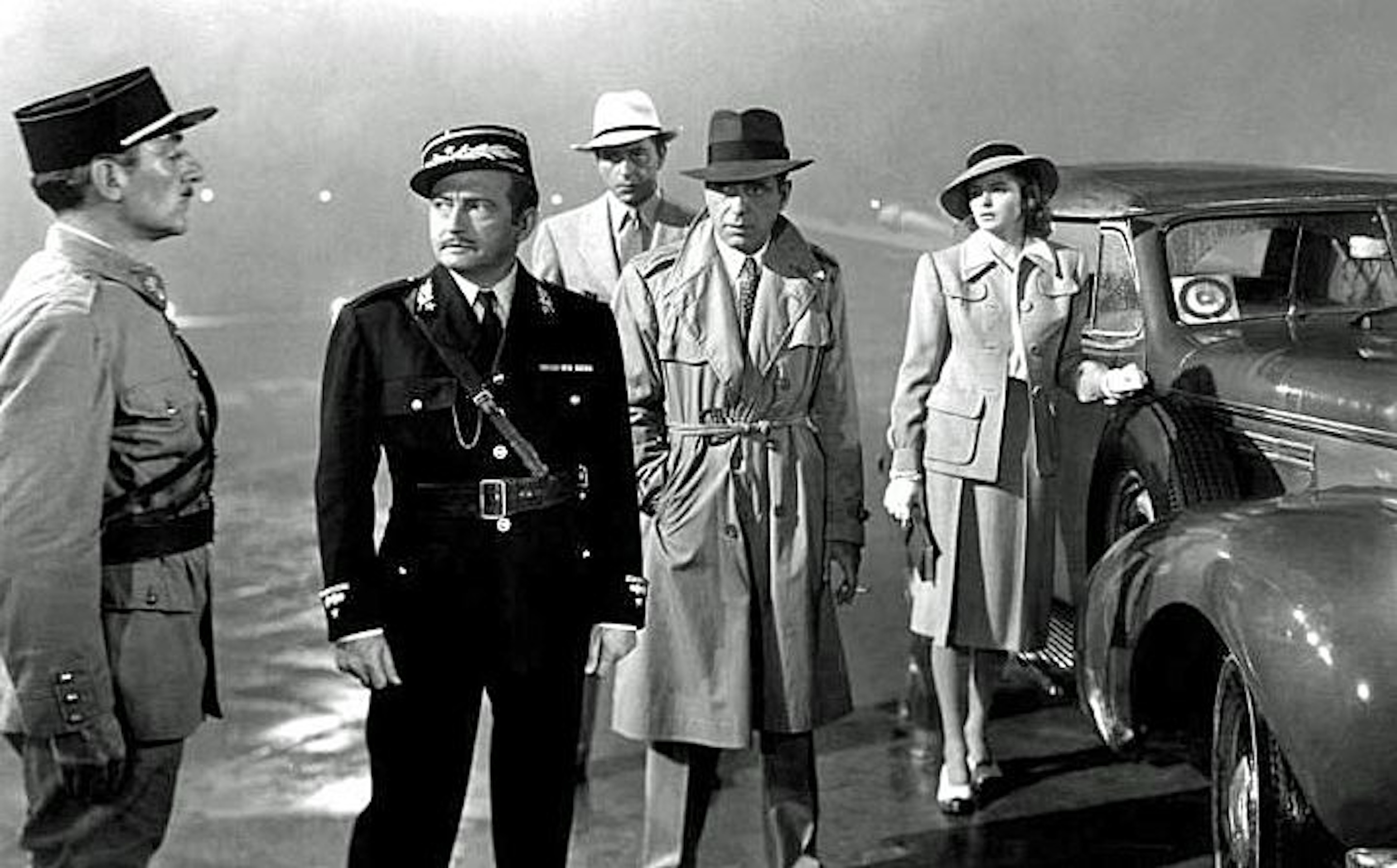
In the climax of Casablanca (1942), Ricks plan to get Victor and Ilsa safely out of Casablanca depends on whether Maj. Renault is more loyal to France and his friend, Rick, than to the Nazis.
Those few Americans who have seen the 1938 Nazi hate documentary The Eternal Jew would undoubtedly call it propaganda. That insidious film was designed to prepare the German people to accept the Nazis eventual slaughter of six million Jews. Most Americans would be comfortable describing a North Korean newscast as propaganda, as we believe the citizens of that country receive only their governments altered version of the facts. The reality has been filtered and edited through their closed media system to serve the interests of Supreme Leader Kim Jong-un. Basically, most Americans believe that propaganda is only practiced by evil people bent on circulating antiAmerican thought. And because its antiAmerican, such messages are also assumed to be a pack of lies.
But these very attitudes might well have been learned through what can be called American propaganda.
Much of the world certainly thinks so. When they are inundated with the flood of intentional and unintentional messages about American culture, thought, and values in the media products that America exports to them, folks in other countries have a name for this phenomenon: they call it cultural imperialism. Because the United States is by far the worlds biggest exporter of media, Americanism penetrates and affects most media markets around the world. Even in countries like Iran where consumption of American media is officially discouraged, bootleg American films, TV shows, and music find their way to the people. Add to that ongoing Voice of America broadcasts into Iran telling the American story in their native Farsi. Third-world nations in particular have good reason to fear that the huge amount of US media that they import could result in the Americanization of their countries.
So what about this American propaganda? If Americans do engage in propaganda, how did this obviously decent, acceptable American practice earn such a bad name for itself?
A Horticultural Metaphor
Originally, the term propaganda carried no negative connotation. The horticultural verb to propagate means to cause something to grow, expand, or to reproduce by sexual or asexual means. The Roman Catholic Church, which centuries ago created their Society for the Propagation of the Faith as its evangelistic arm, is responsible for one of the first uses of the term in the marketplace of ideas.
Most propaganda scholars agree that the basic term has a valueneutral definition. Propaganda is, simply put, persuasion via mass communication that keys on two important goals: first, forming new or adjusted attitudes in the minds of audiences, and second, urging them to action, to do something about these newly acquired attitudes. Albert Banduras work on modeling demonstrated how the media to which individuals are exposed can persuade them to mimic the behaviors seen on the screen. Regular American commercial advertising believed in Banduras ideas to the tune of $171 billion worth of propaganda in 2013 (eMarketer). Especially in an election year, American political ads overwhelm media, and the entertainment programs we listen to or watch certainly contain wholesome and not-so-wholesome American values for worldwide audiences to adopt as models for their behavior. At least $3.67 billion was spent on the 2014 midterm elections, an increase over the last four years of $40 million (Center for Responsive Politics). Someone in America believes in modeling and propaganda and puts up big money to get it working for them.

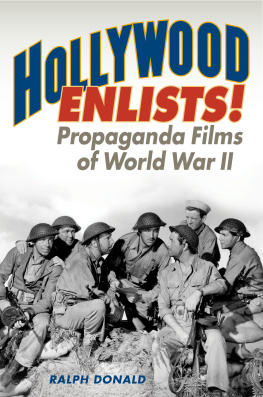

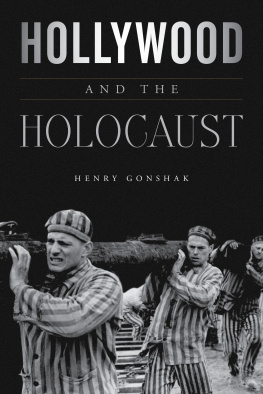
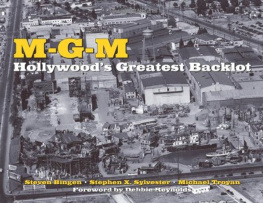
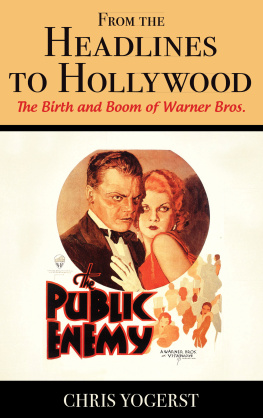



 TM The paper used in this publication meets the minimum requirements of American National Standard for Information Sciences Permanence of Paper for Printed Library Materials, ANSI/NISO Z39.48-1992.
TM The paper used in this publication meets the minimum requirements of American National Standard for Information Sciences Permanence of Paper for Printed Library Materials, ANSI/NISO Z39.48-1992.